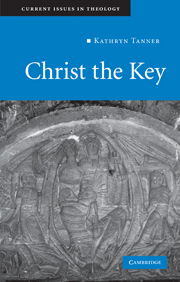7 - The working of the Spirit
Published online by Cambridge University Press: 05 June 2012
Summary
This final chapter explores the split or bifurcated understanding of how the Spirit works that is typical of modern Christian thought and practice. On the one side of this split (perhaps the dominant side in modern times), the Spirit is thought to work immediately – both instantaneously and directly, without any obvious mediating forms – in exceptional events, rather than in the ordinary run of human affairs, upon the interior depths of individual persons, apart from the operation of their own faculties, in ways that ensure moral probity and infallible certainty of religious insight. On the other side of the split, the Spirit is thought to work gradually, and without final resolution, in and through the usual fully human and fully fallible, often messy and conflict-ridden public processes of give and take in ordinary life. On this second view, the Spirit does not begin to work where ordinary sorts of human operation come to an end. To the contrary, the Spirit works through the whole of those ordinary human operations, in and over their gradual and apparently meandering course, to surprising, indeed unpredictable, effect. The one side stresses, then, immediacy, interiority, privacy, singularity, and the bypassing of the fallibility and sinful corruption of the human in both the Spirit's operations and effects; the other side, historical process, mediation, publicity, surprise within the course of the commonplace, and the ability of the Spirit to make do with the fallibility, corruption, and confusions of human life for its own purposes.
- Type
- Chapter
- Information
- Christ the Key , pp. 274 - 301Publisher: Cambridge University PressPrint publication year: 2009



